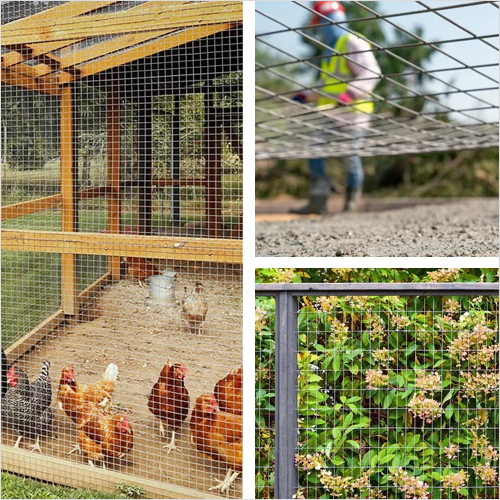nails to use for fence
Choosing the Right Nails for Your Fence
Building a fence is a practical and aesthetic addition to any property, providing privacy, security, and a defined boundary. One crucial aspect of fence construction that often goes overlooked is the selection of the right nails. While it may seem minor compared to the actual materials of the fence, the type of nails you use plays a significant role in the durability and integrity of the structure. This article will explore various types of nails suitable for fencing, their benefits, and considerations to keep in mind.
Types of Nails for Fencing
1. Galvanized Nails These are one of the most popular choices for fencing applications. Galvanized nails are coated with a layer of zinc to prevent rust and corrosion, making them ideal for outdoor use. The durability provided by this coating ensures that the nails will withstand the elements, contributing to the overall lifespan of the fence. For wooden fences, a common choice is 8d or 10d galvanized nails, as they offer a strong hold without damaging the wood.
2. Stainless Steel Nails If you're looking for a premium option that offers superior resistance to rust and corrosion, stainless steel nails are the way to go. While they tend to be more expensive than galvanized options, their longevity and strength make them worthwhile, especially in coastal areas where saltwater can accelerate corrosion. Stainless steel nails are widely used in high-end or decorative fencing projects.
3. Ring Shank Nails For added grip, consider using ring shank nails. These nails feature elongated ridges along the shaft, which help them hold firmly in place once driven into the wood. This makes them an excellent choice for fencing, where the structural integrity is vital. They are particularly useful in high-wind areas, reducing the likelihood of the fence boards pulling away from the posts.
4. Fence Staples If your project involves livestock or garden fencing, you might want to consider fence staples. These U-shaped nails are specifically designed for attaching fencing to wooden posts, providing a robust and secure connection. Make sure they are also galvanized to ensure that they won’t rust over time, compromising the strength of your fence.
nails to use for fence

Key Considerations
- Length and Gauge The length and gauge (thickness) of the nails are important factors to consider. For wooden fences, a length of 1.5 to 2.5 inches is typically sufficient, but you should choose a thicker gauge for increased holding power. Remember that longer nails can provide a stronger connection but may also split smaller pieces of wood.
- Local Climate Assess your local climate conditions when selecting nails. In areas with high humidity or frequent rainfall, opt for galvanized or stainless steel nails to prevent oxidation. In drier regions, regular galvanized nails might suffice.
- Type of Wood Different types of wood have varying densities and therefore require different types of nails. Softer woods like pine are easier to work with and can use standard galvanized nails, while harder woods like cedar may benefit from the added grip of ring shank nails.
- Installation Method Whether you're using a hammer or a nail gun can affect your choice of nails as well. For nail guns, ensure that you select nails compatible with your tool.
Conclusion
Choosing the right nails for your fencing project is essential for ensuring its longevity and effectiveness. By considering the type of fence, the environmental conditions, and your installation method, you can select the best nails to secure your structure effectively. This attention to detail will pay off in a strong, durable fence that stands the test of time.
-
Space-Saving Chain Fence Hacks Vertical Gardening with Cyclone MeshNewsJul.16,2025
-
Innovations in Iron Nail Wire Production for Modern ConstructionNewsJul.16,2025
-
Creative Uses of Wire Netting Fence in Modern Landscape DesignNewsJul.16,2025
-
Barbed Wire Fence Innovations in Anti-Climb TechnologyNewsJul.16,2025
-
Architectural Uses of Umbrella Nails for Aesthetic Roof DesignsNewsJul.16,2025
-
Architectural Uses of Razor Barbed Wire in Secure Urban DesignNewsJul.16,2025




